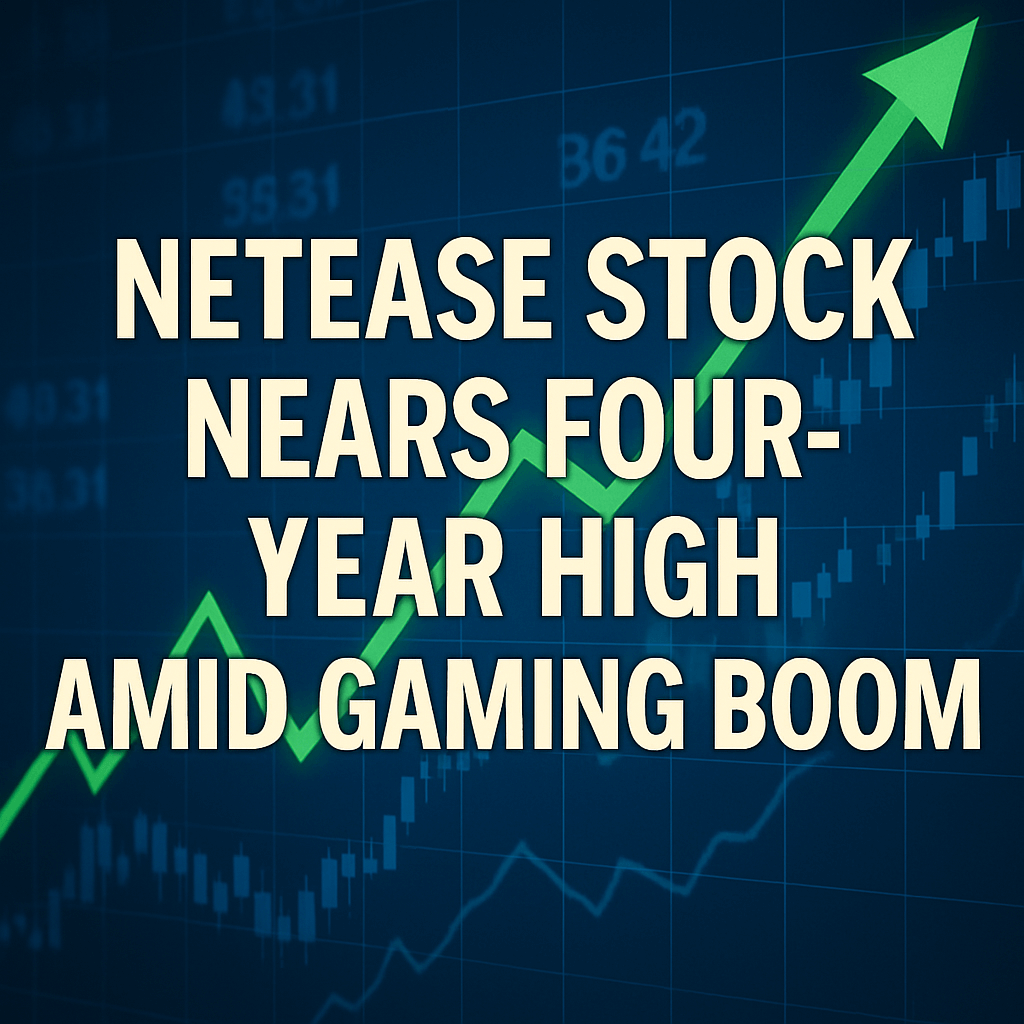NetEase Stock Nears Four-Year High Amid Gaming Boom

Market Performance and Valuation
Hong Kong-listed shares of NetEase Inc., the developer behind popular franchises such as Eggy Party, are trading within 3% of their 2021 record high. This year alone, the stock has gained 45%, outperforming the broader Hang Seng TECH Index, which is up 12%. Tencent Holdings Ltd., NetEase’s chief rival, has also risen 22% over the same period.
- NetEase forward price-to-earnings (P/E) ratio: ~15x
- Tencent forward P/E ratio: ~18x
- Nintendo forward P/E ratio: ~35x
- Take-Two Interactive forward P/E ratio: ~60x
Cheap valuations relative to global peers, coupled with resilient earnings growth, have attracted both domestic and international investors seeking defensive exposures amid rising US tariffs and chip-export restrictions.
Consumer Trends and Freemium Models
China’s Gen Z consumers are redirecting disposable income toward digital entertainment. The freemium business model—offering free-to-play core experiences with optional in-game purchases—has proven particularly effective:
- Low Entry Barrier: Free downloads and basic play lower the cost of acquisition.
- Microtransaction Revenue: Cosmetic items, battle passes and loot-box mechanics generate recurring cash flows.
- Emotional Engagement: Social features and live events drive user retention and deepen engagement.
New Releases and Legacy Franchises
Beyond evergreen titles, recent launches have reinforced momentum. NetEase’s mobile RPG Where Winds Meet debuted in January with 2 million daily active users (DAU) in its first month. Tencent’s Delta Force, a first-person shooter released last September, remains in the top five free-to-play charts on Apple’s China App Store.
Meanwhile, older IPs are seeing revivals: NetEase’s Identity V hit a quarterly DAU record of 15 million, and World of Warcraft saw a 20% quarterly increase in Chinese subscriptions after its reintroduction last year.
Regulatory Landscape and Approval Dynamics
After a period of stringent scrutiny, China’s regulators have increased game approvals. The Ministry of Culture and Tourism approved 654 titles in the first half of 2023—up 15% year-on-year—smoothing the path for both domestic sequels and imported games.
“Regulatory clarity has improved,” said Elias Erickson, fund manager at Ninety One Plc. “We’ve seen reduced volatility around new license grants, which supports pipeline visibility.”
Valuation Metrics and Peer Comparison
On an earnings basis, NetEase trades at roughly one-quarter the P/E of US peers like Take-Two Interactive. Its price-to-sales (P/S) ratio of 4.2x is also half that of analogous global game stocks, suggesting potential for multiple expansion as revenue growth accelerates.
- NetEase – Forward P/S: 4.2x, EBITDA margin: 29%
- Tencent – Forward P/S: 5.0x, EBITDA margin: 32%
- Nintendo – Forward P/S: 9.0x, EBITDA margin: 40%
Long-Term Growth Drivers and Risks
Analysts highlight several catalysts for 2024–25:
- 5G and Cloud Gaming: Enhanced network speeds and cloud infrastructure could unlock new distribution channels.
- Exports and Localization: Greater overseas revenue diversification, especially in Southeast Asia and Europe.
- AI-Driven Content: Procedural generation and personalization could boost engagement and reduce development cycles.
Key risks include potential tightening of mobile data pricing, evolving youth spending preferences, and competitive pressures from Western and indie developers.
Expert Perspectives
“The shift toward digital consumption is structural,” said Xiadong Bao, fund manager at Edmond de Rothschild Asset Management. “As deflationary pressures persist, consumers favor low-ticket digital services over big-ticket goods, benefiting leading game operators.”
Upcoming Titles to Watch
Later this year, major updates and sequels will test consumer appetite: Tencent’s Honor of Kings: World and NetEase’s Destiny: Rising aim to refresh player bases with new engines and global server rollouts.
Conclusion
With structurally robust consumer demand, supportive regulations and attractive valuations, NetEase and its peers appear well positioned for the next leg of growth. Investors seeking quality exposure to China’s new-economy sectors should monitor pipeline developments and macro shifts that could alter the competitive landscape.